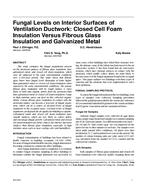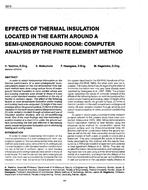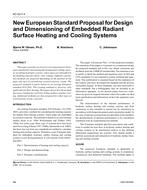It is easy to walk around an operating machine with a sound level meter and obtain noise readings. Care is needed, however, to assure that your readings give a true indication of the noise of the machine, even for that particular installation. In addition, certain criteria for both measuring technique and acoustical environment must be met if such measurements are also used to predict the noise from a similar machine installed elsewhere.
In the past it was commonly believed that valid measurements of machine noise could only be made in a carefully controlled acoustical environment such as an anechoic or semi-anechoic chamber or a reverberant room. This may be awkward or impossible, however, for medium or large sized machines because of loading requirements, service connections, or interfacing with special equipment. In recent years it has been found that it is often possible to make in situ measurements which agree closely with measurements that would have been obtained in a controlled acoustical environment (1). A number of previous papers have given strong theoretical support for the validity of such procedures (2,3,4).
This paper attempts to help you understand and, in many cases, control those aspects of the sound field that can lead to measurement errors. The selection and use of measurement equipment is discussed. Procedures for obtaining machine noise data in both indoor and outdoor installations are described so that the noise from the same type of machine in other installations can later be predicted. A procedure for determining compliance with the Occupational Safety and Health Act (OSHA) of the United States Department of Labor is presented (5).
Citation: Symposium, ASHRAE Transactions, Volume 80, Part 2, Montreal, QC
Product Details
- Published:
- 1974
- Number of Pages:
- 11
- File Size:
- 1 file , 690 KB
- Product Code(s):
- D-MO-74-04-4


